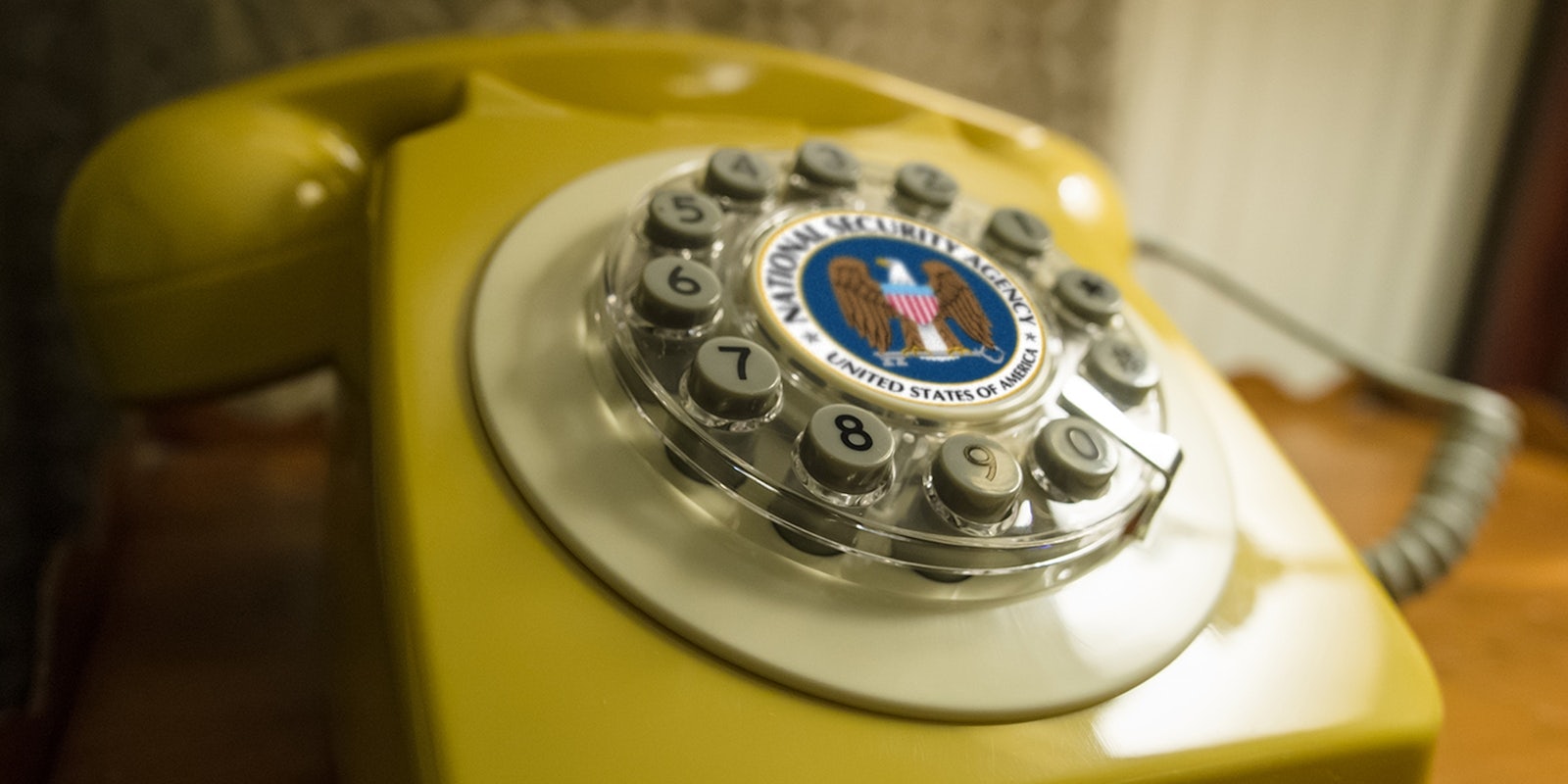On Friday, the U.S. will almost certainly authorize the National Security Agency to keep tracking Americans’ phone calls for another three months.
On June 5, The Guardian published a Top Secret court order served to Verizon, ordering the company to give the NSA a record of every single phone call placed in the United States. That doesn’t include the contents of those calls, but does mean all metadata—like when the calls were made, and how long they lasted. It applies to every call where at least one party is in the U.S.
Signed by FISA court judge Roger Vinson on April 25, the order was for three months, and expires Friday, July 19, at 5:00 P.M. Eastern.
The White House hasn’t commented publicly on whether the a judge would extend the order for another three months. It referred the Daily Dot to the Department of Justice, which declined to comment.
Privacy activists have been outraged by the Verizon document. A coalition organized on the site StopWatching.Us has logged weeks’ worth of talk time with congressional offices. And some members of Congress are working on bills to curb the NSA’s spy power.
But there’s little doubt that the order has full government support. According to a 2009 NSA memo—which, like the Verizon order, were leaked to The Guardian by whistleblower Edward Snowden—the NSA has been collecting phone companies’ metadata since shortly after 9/11.
President Obama has publicly admitted to and defended metadata collection. Calling it the “215 program,” a reference to the section of the PATRIOT Act that authorizes metadata collection, he told Charlie Rose that NSA “gets data from the service providers—like a Verizon—in bulk.”
On Wednesday, the NSA gave more indication of why it wants a record of everyone’s calls. In a hearing with the House Judiciary Committee, NSA deputy director Chris Inglis said the agency looks for “two or three hops.” In other words, it uses the practice of “contact chaining” to see who’s been in contact with someone who’s been in contact with a second person who’s been in contact with any suspected terrorist.
Photo via Seattle Municipal Archives / Illustration by Jason Reed


